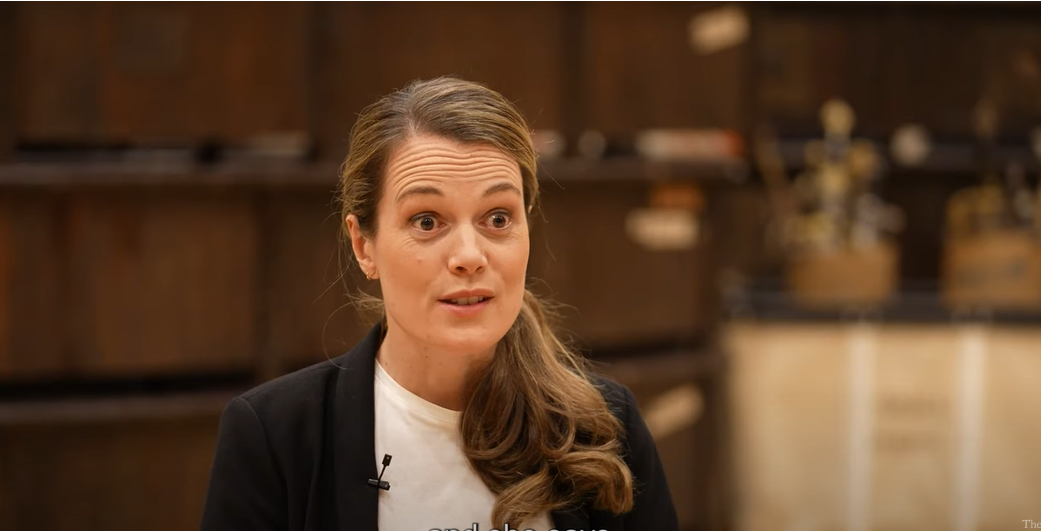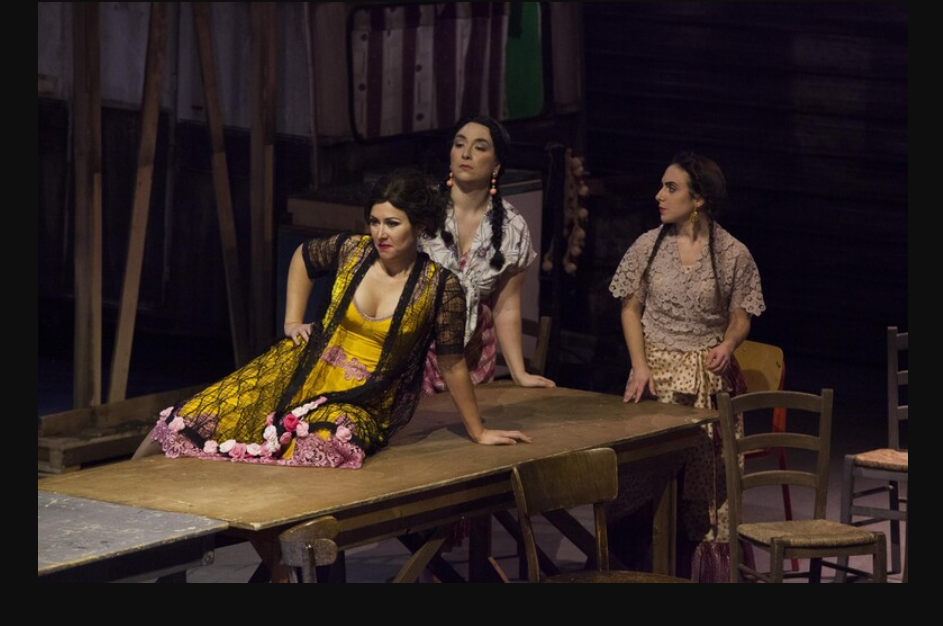Bizet’s opera Carmen is a masterpiece of French romanticism that explores the themes of love, freedom and fate. The story revolves around the fiery gypsy Carmen, who seduces and abandons the naive soldier Don José, leading him to desert his duty, join a band of smugglers and kill his rival, the bullfighter Escamillo.
Carmen’s passion and independence are contrasted with Don José’s obsession and jealousy, creating a tragic drama that culminates in a violent confrontation. The opera is famous for its hummable tunes, exotic settings and dramatic characters, as well as its realistic portrayal of the dark side of human emotions. It is perennially one of the most popular of the grand operas.
However, the theme of romantic obsession and its consequences that played so well in the 19th and most of the 20th centuries is being revised in the 21st as the relationship between Carmen and Don José today becomes a glaring example of domestic violence and feminicide in the new production that debuted at the Metropolitan Opera on New Year’s Eve.
The modern-dress production is set near an unspecified border in America. The opening run stars the Russian mezzo-soprano Aigul Akhmetshina in the title role and the tenor Piotr Beczala as José, the soldier whose obsession with Carmen culminates in her murder.

The production’s director, Carrie Cracknell has made a name for herself in theater with acclaimed productions of works like Ibsen’s “A Doll’s House” and Euripides’ “Medea” — all classic stories from the European canon that she chooses to see through a feminist lens. They are “about women who find themselves caged by patriarchal structures and cause chaos as a way of dealing with it.”
With “Carmen,” her Met debut, she wanted to question the view that Carmen’s death at the hands of José is a crime of passion, the deserved result of her teasing, manipulating, and corrupting an innocent soldier, only to discard him when her objectives were achieved.
“We talk about domestic violence as these things which we understand to be a secret between a man and a woman,” she said. In the case of Carmen’s death, she added, “we’re trying to frame that as an outcome that feels as much about gender as about two individuals.”
One of the longest-running productions of Carmen was staged by Italian director Franco Zeffirelli which debuted on Oct. 31, 1996. Subsequently, the Metropolitan Opera staged seven revivals of Zeffirelli’s Carmen in the 11 seasons after the production’s 1996-1997 season debut. Zeffirelli’s over-the-top production adhered to the traditional interpretation and was characterized by the excess and intensity of grand opera, and he received heavy criticism from numerous critics. Zeffirelli was known for his exuberant style which in the case of Carmen, was called “bloated and frenetic”.
Cracknell is not the first to put a new spin on “Carmen.” In Cologne, the director Lydia Steier had Carmen wrest back enough agency to kill herself. At the Royal Opera House in London, Barrie Kosky’s androgynous Carmen rose up after her death with a shrug.
In a 2018 production in Florence, directed by Leo Muscato, Carmen turned the gun on José and shot him. The latter is interesting for another reason: the current Italian Prime Minister Giorgia Meloni made her disapproval of this resolution known at the time in a tweet.

Bizet’s opera embodied the gender ideology of its time, that of feminine modesty and subjugation versus the masculine imperative to dominate and conquer. Women like Carmen, who wrested power through the flaunting of their sexuality in that hierarchical system, upended this “natural order of things” and ultimately destroyed men like José. For that disruption of the societal order, she must pay the price.
Cracknell said that while Carmen’s death is inevitable as it is framed to suit the era, she wants to “de-romanticize” her death. When women are killed by their intimate partners, “the reality of these things is that they’re chaotic and messy and horrific and that they destroy lives,” she said. “So we’ve tried to replicate that rather than allowing it to feel like a kind of intimate, central moment of transition.”

Aigul Akhmetshina, still wearing her costume of black leather trousers, a black cutout top and turquoise cowboy boots when interviewed, stated that she finds it fascinating that “women hate Carmen and men hate Carmen.” “Women because they cannot have the same power, men because they cannot control her,” she added. Even today, she said, “our world is not ready for Carmen. She’s absolutely honest and truthful.”
Cracknell wants to be sure to emphasize the universality of the theme: “Women are still killed by their partners on an enormous scale in most places in the world,” she said. “And we are obsessed with that narrative.”
For this reason, in her production she highlights the number of witnesses who watch José’s jealousy escalate from small acts of cruelty to life-threatening assaults without intervening, until it finally culminates in Carmen’s murder. A scenario that is sadly played out in real life all too often, where we recognize it not as an operatic grand passion or romantic obsession, but for what it is: the banality of domestic violence that could be happening to people you know.












